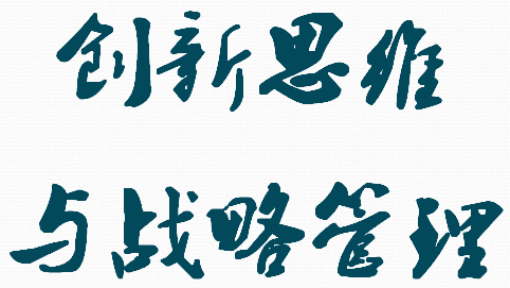
当前课程知识点:数字集成电路分析与设计 > Designing Arithmetic Building Blocks II > 1. Key Points Review > Video
大家好
今天我们将介绍
完运算功能块的剩下内容
今天我将介绍乘法器和移位器
首先我先复习一下上一堂课的内容
上一堂课我介绍了全加器
以及其复合门实现方式
在复合门实现方式中
一共需要32个晶体管
接下来我介绍了多级加法器
它的缺点是PMOS晶体管堆叠
和负载电容很高
负载电容包括2个扩散电容和6个门电容
进位输出是通过两级反相单元生成的
优点是作为关键信号的Ci
被放置得离门的输出尽量近的位置
而且Ci被放置在PMOS堆叠更少的通路
之后我介绍了镜像加法器
在镜像加法器里
上拉网络是下拉网络的镜像
镜像加法器的实现只需要24个晶体管
这是镜像加法器的性质
NMOS和PMOS链是完全对称的
最多只有2个串联的晶体管
然而在多级
加法器的进位产生电路
的上拉网络中
有3个串联的晶体管
这是进位输出的电容
进位输入被放置在离输出最近的地方
只有在进位电路中的晶体
管需要为性能进行优化
在“和”产生电路中的晶体管
不需要被优化
可以是最小尺寸
我还介绍了传输门全加器
这一加法器的性质
是获得“和”
与进位的延时是一样的
这在实现乘法器的时候是个非常有用的性质
我在这一堂课里会介绍
上一堂课还介绍了如何计算逐位进位加法器的延时
所以加法器的延时
等于(N-1)*tcarry加上tsum和tcarry的最大值
从这个公式有两个结论
第一个是tcarry
远比tsum重要
还有加法器的延时
和位数成正比
这张胶片告诉我们
怎么计算旁路进位加法器的延时
通过这里,第一级
通过多路选择器
然后通过多路选择器进行旁路
直到加法器的末端
这是线性进位选择加法器
延时等于这个
是从这到这的延时
这是平方根进位选择加法器
在这个加法器里
加法器的延迟正比于
位数2倍的平方根
这是超前进位加法器
还有Kogge-Stone电路
它是对数超前进位加法器
因此加法器的传播延时
可以得到有效降低
这是对上一堂课的简单回顾
-1
--文档
-1.Introduction to Digital IC
--Video
-2.Architecture of Digital Processor
--Video
-3.Full Custom Design Methodology
--Video
-4.Semicustom Design Methodology
--Video
-5.Quality Metric of Digital IC
--Video
-6.Summary and Textbook Reference
--Video
-7.HW--作业
-7.PPT
--补充材料1
--补充材料2
-Key Points Review of Last Lecture
--Video
-1.Introduction
--Video
-2.The Diode
--Video
-3.The MOSFET Transistor
--Video
-4.Secondary Effects
--Video
-5.Summary and Textbook Reference
--Video
-6.HW--作业
-6.PPT
--补充材料
-Key Points Review of Last Lecture
--Video
-1.Introduction
--Video
-2.Static Behavior
--Video
-3.HW--作业
-3.PPT
--补充材料
-Key Points Review of Last Lecture
--Video
-1.Dynamic Behavior I
--Video
-2.Dynamic Behavior II
--Video
-3.Power Dissipation
--Video
-4. Summary and Textbook Reference
--Video
-5.HW--作业
-5.PPT
--补充材料
-1.Introduction
--Video
-2.Static CMOS Design I
--Video
-3.Static CMOS Design II
--Video
-4.HW--作业
-4.PPT
--补充材料
-Key Points Review of Last Lecture
--Video
-1.Static CMOS Design III
--Video
-2.Static CMOS Design IV
--Video
-3.Dynamic CMOS Design
--Video
-4.Summary
--Video
-5.HW--作业
-5.PPT
--补充材料
-1.Introduction I
--Video
-2.Introduction II
--Video
-3. Static Latches and Registers I
--Video
-4.Static Latches and Registers II
--Video
-5.Static Latches and Registers III
--Video
-6.HW--作业
-6.PPT
--补充材料
-1.Key Points Review
--Video
-2.Dynamic Latches and Registers I
--Video
-3.Dynamic Latches and Registers II
--Video
-4.Dynamic Latches and Registers III
--Video
-5.Pulse Register
--Video
-6.Pipelining
--Video
-7.Schmitt Trigger
--Video
-8.Summary and Textbook Reference
--Video
-9.HW--作业
-9.PPT
--补充材料
-1. Introduction
--Video
-2. Adder: Full Adder (Definition)
--Video
-3. Adder: Circuit Design
--Video
-4. Adder: Logic Design I
--Video
-5. Adder: Logic Design II
--Video
-6. Adder: Summary
--Video
-7.HW--作业
-7.PPT
--补充材料
-1. Key Points Review
--Video
-2. Multiplier
--Video
-3. Shifter
--Video
-4. Summary and Textbook Reference
--Video
-5. HW--作业
-5. PPT
--补充材料
-1. Introduction
--Video
-2. Capacitance
--Video
-3. Resistance
--Video
-4. Electrical Wire Models
--Video
-5. Summary and Textbook Reference
--Video
-6. HW--作业
-6. PPT
--补充材料
-1. Introduction
--Video
-2. Capacitive Parasitics
--Video
-3. Capacitive Parasitics II
--Video
-4. Resistive Parasitics
--Video
-5. Summary and Textbook Reference
--Video
-6. HW--作业
-6. PPT
--补充材料
-1. Assignment Solving
--Video
-2. The teaching assistants want to say
--Video
-1. Problem 1
--Video
-2. Problem 2
--Video
-3. Problem 3
--Video
-4. Problem 4
--Video
-5. Problem 5
--Video
-6. Problem 6
--Video
-7. Problem 7
--Video
-1. Problem 8
--Video
-2. Problem 9
--Video
-3. Problem 10
--Video
-4. Problem 11
--Video
-5. Problem 12
--Video
-6. Problem 13
--Video
-7. Problem 14
--Video


